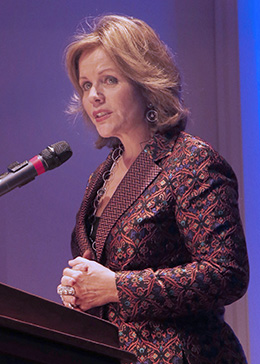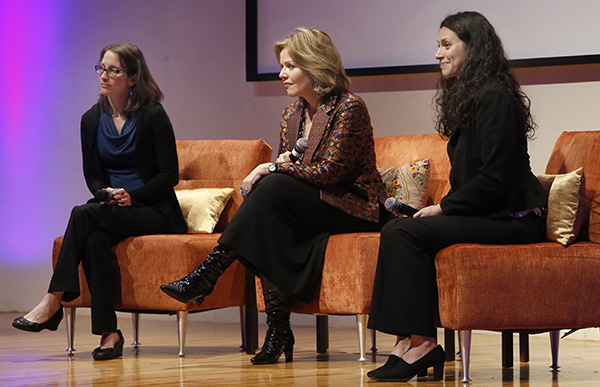Home » News » Fine Tuning the Mind
Fine Tuning the Mind
Posted by anderc8 on Thursday, February 15, 2018 in News, TIPs 2015.
Written by Delphanie Wu, First-Year Doctor of Audiology student
The mind in music has always fascinated me. My earliest musical memory dates back to my first day of Kindermusik. I recall walking in circles as I hit blocks with sticks and shook mini tambourines with the rest of the bright-eyed and bushy-tailed little ones in our colorful, stimulating room. Several years later, I mentioned to my mother that I remembered her being there for a “performance” at the end of a session, and she laughed as she informed me that parents always stayed through these classes. It seems I had enjoyed myself so much that my memories revolved solely around those percussive adventures.
My first formal experience with music came in the form of piano lessons. Though I did not realize it at the time, my first teacher was intense in her classical training. What was most enjoyable and memorable for me, though, was her emphasis on composition training. My young mind was opened up to this power of creation, reminding me that the music bouncing around my head could be written down and shared with others. This distinctively influenced my perspective on listening to and experiencing the works of others. How had another mind dreamed up a masterpiece that I could not even fathom the genesis of? Why did it evoke so much in me? How could anyone leave this musical encounter unchanged?

Ms. Renée Fleming presents Music and the Mind, exploring the power of music to heal and transform in society. (Vanderbilt University / Steve Green)
Chances are that you have experienced instances like these at the hand of music as well. What you hear and process has triumphed over every other environmental sensation at your disposal. You have wondered why one particular work affects you differently from another, and perhaps you have even tried to dissect the melodic concoction presented to you any way you know how. Indeed, the interaction between music and the mind is unlike anything else. Our team at the Vanderbilt Music Cognition Lab had a chance to explore these concepts at a special event with renowned singer and arts ambassador Renée Fleming on November 29, 2017, and we have learned more every day since the Program for Music, Mind & Society was established in 2015 thanks to a Trans-Institutional Programs (TIPs) award. Ms. Fleming’s talk discussed the transformative power of music with a focus on how music affects the brain and health across a broad array of disorders, including traumatic brain injury and Alzheimer’s disease. She illustrated these concepts with a compelling compilation of videos, scientific data, stories and clinical evidence. Ms. Fleming also recounted the intriguing history of how she and NIH Director Dr. Francis Collins first connected in 2015 and how their conversations about the science of music led to the new Sound Health partnership between the Kennedy Center for Performing Arts and the NIH (Collins & Fleming, JAMA, 2017).
Presentation by Ms. Fleming, Dr. Lense and Dr. Gordon at the Music and the Mind event brought together the newest science exploring the role of music in society, and particularly its place in healing and therapy, social engagement as well as its effect on children with developmental disabilities. This event was co-sponsored by Peabody College, the Curb Center, Oz Arts Nashville, the Blair School for Music, and the Vanderbilt Department of Otolaryngology, bringing together people from all domains who created a wide spectrum of exposure. Regardless of the amount or presence, skill or study, attendees sitting in the Wyatt Rotunda were connected by music and the new or deepening realization of its intersectionality with all aspects of humanity. There truly was something for everyone, and people were able to find themselves in the stories of restoration and rehabilitation, finding solace and a connection with others through music.

(from L-R) Dr. Miriam Lense (Research Instructor, Department of Otolaryngology), Ms. Renée Fleming and Dr. Reyna Gordon (Assistant Professor, Departments of Otolaryngology and Psychology) listen to a member of the audience during the closing discussion. (Vanderbilt University / Steve Green)
As with many individuals who grow up as musicians, I felt my involvement as an instrumentalist waning the older I got. In late elementary school, I switched from piano to violin as my main instrument, and pursued this throughout high school. The beginning of college tends to becomes a big dropping point where students find they cannot pursue musicianship to the same degree, unless they’ve chosen a related area of study. Miraculously, I was able to continue with private lessons, and even participated in various ensembles. As I neared graduation and prepared to study audiology at the Vanderbilt School of Medicine, I was so sure that there would be little or no room left in my life to keep growing as a violinist. The day before classes started, though, a third-year student in my program told me about her work in the Music Cognition Lab. It sounded too good to be true! An interdisciplinary group of students and professionals had found a home on this team, capitalizing on the creativity and flexibility to pursue individual passions as well as the aggregate commitment to discovering how music works from the neuronal to the cultural level.
The work and stories of my colleagues make me believe even more in the power of music each day. We have been carried along our different endeavors by music, transplanted to Music City, and reinvented as musician-scientists. Our minds have been transformed by our hobbies and studies in this fine art, from the molecular to the societal level. We each take great pride and joy in deconstructing the mind in music, and sharing the incredible nature of this relationship with our community.
I invite you to leave comments or questions in the space provided below, and encourage you to return to this blog page regularly throughout the semester.
